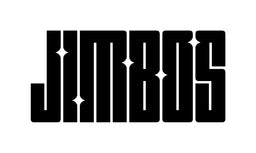Deionized Water: Is It Worth It?
Tired of chasing water spots after every wash? Deionized (DI) water might be the secret to the perfect, spot-free finish. In this guide, we’ll break down what deionized water actually does, how it compares to regular tap water, and whether it’s worth adding to your detailing setup.
Estimated Reading Time: ~6 minutes
What Is Deionized Water?
Deionized water is regular water that’s been stripped of its minerals — like calcium, magnesium, and silica — through a filtration process. These minerals are what cause water spots when water dries on your paint. Removing them means the water can evaporate cleanly, leaving behind no residue at all.
In simple terms, deionized water dries spot-free. That’s why professional detailers use it for their final rinse — especially in hot or hard-water regions.
Hard Water vs. Deionized Water
| Water Type | Mineral Content (ppm) | Spot Risk | Result After Drying |
|---|---|---|---|
| Hard Water | 150–400+ | High | White spots and film |
| Soft Water | 0–100 | Medium | Fewer spots but still residue |
| Deionized Water | 0 | None | Dries crystal clear |
Why Water Spots Are So Hard to Avoid
When water evaporates, minerals don’t — they stay on your paint and form visible spots. Over time, these minerals can even etch into clear coat, creating permanent stains that require polishing to remove.
If you’ve ever washed your car in the sun or used hose water on a hot day, you’ve seen the effects firsthand. That’s where deionized water comes in — it lets you rinse and walk away without racing to dry everything instantly.
Use Less Water, Get Better Results
Pair deionized water with The Super Soaper for the cleanest, streak-free wash possible — no rushing to dry before spots form.
Buy on Jimbo’s Detailing Buy on AmazonHow to Use Deionized Water in Your Wash
- Pre-rinse with tap water: Knock off the heavy grime first. Save your DI water for the final rinse to conserve it.
- Foam with The Super Soaper: Its slick, self-rinsing formula reduces the need for constant drying.
- Rinse with DI water: Once all soap is gone, do a final rinse using your deionized system. You can let it air dry — no spots.
- Protect with Tough As Shell: Apply Tough As Shell to make future washes even easier and keep your finish glossy.
Is a DI System Worth It?
If you live in an area with hard water, absolutely. Deionized systems can be a game changer for maintaining a spotless finish and cutting down drying time. You’ll save towels, reduce swirl risk, and never stress about the sun again. For mobile detailers, it’s one of the best professional upgrades available.
For occasional washers, it’s not a must-have — just wash in the shade and use The Super Soaper for its low-residue, spot-reducing formula.
Deionized Water vs Filtered Water
| Feature | Filtered Water | Deionized Water |
|---|---|---|
| Removes chlorine | ✔️ | ✔️ |
| Removes minerals | ❌ | ✔️ |
| Dries spot-free | ❌ | ✔️ |
Pro Tip: Save Your DI Water for the Final Rinse
Deionized water cartridges can get expensive, so use them strategically. Do all pre-soaking, foaming, and main rinsing with normal tap water. Then switch to DI water for your last rinse. That’s where it really shines — literally.
Pro Detailer’s Take
In SoCal’s hard water areas, a DI system pays for itself fast. No more spots, less towel use, and faster washing. If you can swing the setup, it’s worth it — especially paired with The Super Soaper and Tough As Shell. That combo makes washing in heat or sun easy again.
Related Reading
- Why Hard Water Creates Spots in Summer
- Washing in the Shade vs Direct Sunlight
- How to Wash a Car in the Winter
- How to Wash a Car in the Heat Without Spots
- How to Avoid Swirl Marks When Washing
Spot-Free Rinsing Made Simple
Stop fighting hard water. Pair a DI system with The Super Soaper and Tough As Shell for the cleanest, easiest wash you’ve ever done.
Buy on Jimbo’s Detailing Buy on AmazonFAQs
Is deionized water really spot-free?
Yes. With zero minerals or contaminants, DI water dries completely clear — no streaks or spotting.
Do I need to dry after rinsing with DI water?
No. That’s one of its biggest benefits — you can let it air dry without spots forming.
Is DI water safe for ceramic coatings?
Absolutely. In fact, it enhances their hydrophobic properties and keeps the surface cleaner longer.
Is a DI setup expensive?
Entry-level portable systems are affordable and last for months. The savings on towels and time often make up the cost quickly.



